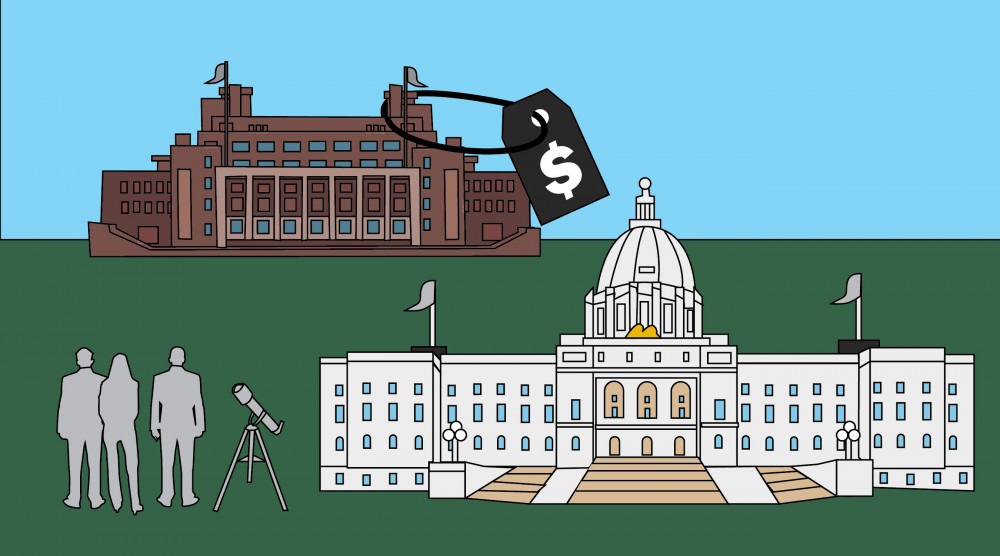A divided state government led to a compromise in funding: $43.5 million beyond the state’s base appropriations, or half of what the University of Minnesota requested. Lawmakers say the split in party politics primarily led to the outcome.
Some Republicans cited a need for greater efficiency in spending from the University, while some Democrats wished they could have funded the school enough to freeze tuition. With a $90 million difference in proposals from the split House and Senate, lawmakers stated varying priorities, such as social programs, in their hopes for state funding. The Legislature also requested the University limit tuition increases to under 3 percent each year.
“Right now, we’re not convinced that we’re getting our money’s worth,” said Sen. Jim Abeler, R-Anoka.
The Democrat-controlled House proposed a $114 million beyond the state’s base allocation, an amount University officials said would ensure tuition remains flat. The Republican-controlled Senate proposed a $24 million increase to base appropriations.
“With a divided government, it was very difficult, but we had to compromise,” said Rep. Connie Bernardy, DFL-New Brighton, chair of the House higher education committee. “We have a huge value for higher education and supporting our students in this state. And that is something that I see that going on in the future.”
Bernardy emphasized that the House sought to fund the University to the level administrators said would be necessary to freeze tuition.
James Farnsworth, Minnesota Student Association chief of staff, said University President Eric Kaler’s initiative to cut $90 million in administrative costs wasn’t enough for some lawmakers. Abeler echoed this, saying the progress of Kaler’s initiative was unclear.
“How many fewer people are working there now? What departments have one less staff? What have you economized? And what departments have you combined to be more efficient?” Abeler said. “And I don’t think they can tell us that.”
Sen. Rich Draheim, R-Madison Lake, vice chair of the Senate higher education committee, said the University needs to make greater structural changes to reconcile less funding. He said regardless of how much the Legislature appropriates, institutions always come back seeking more funding the next session.
“At one corner of the mouth, it’s ‘We’re a land grant, you can’t dictate to us what to do.’ And then another corner of the mouth they’re saying, ‘Hey, we need more funding,’” Draheim said.
Draheim said he was happy to see some members of the Board of Regents challenge Kaler’s proposal to increase tuition by 2.5 percent.
Because the University was established seven years before the state in 1851, lawmakers cannot mandate limits to a tuition increase — although they can make requests. On Wednesday, regents voted on a 2 percent increase to tuition, 1 percent below the Legislature’s requested cap.
“I fully disagree with the idea that we cannot be mindful of the mood of the legislature,” Regent Darrin Rosha said at the Wednesday board meeting. He said the University must spend its money wisely and remain accessible to students to maintain a closer relationship with the Legislature.
The University’s government relations team, which lobbies for University funding from the Legislature, works to help lawmakers understand why the University is an important asset to Minnesota, said University Chief Government Relations Officer J.D. Burton. But, he said, state resources are finite.
“That $43.5 million, while below what we have requested, is still a significant amount of resources in new funding that comes from the state to the University on top of what is already provided,” Burton said.
Many lawmakers are also optimistic about working with President-designate Joan Gabel in the upcoming legislative session.
“The energy is great, and that she’ll be bringing a new perspective that we haven’t had before,” said Rep. Laurie Pryor, DFL-Minnetonka. “So I think that new perspective on things will also be will be helpful.”
















